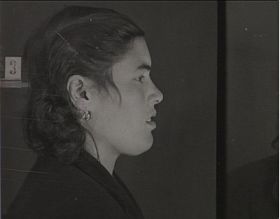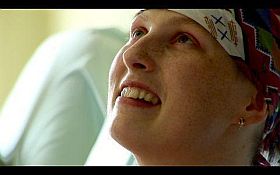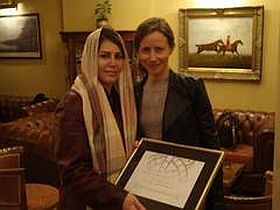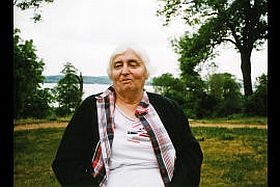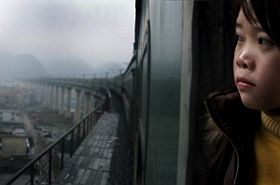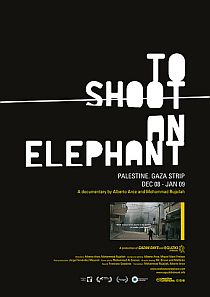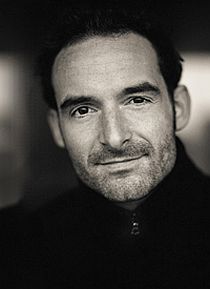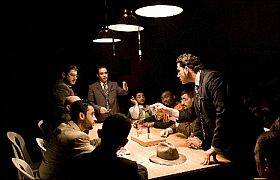”Ved denne films afslutning er der dukket nye problemer op. En ulovlig lækage i 2007 blev ifølge rygtet givet til pressen af en medarbejder i forsvarsministeriet. Dermed kan dramaet fortsætte for politikeren og mennesket Søren Gade.” Denne skriftlige afmelding på Krigsministeren ved tv-visningen i januar råbte på en fortsættelse.
Så det var da et ansvarligt og generøst forslag, Søren Gade som medvirkende kort efter kom med, da han kontaktede filmens instruktør og foreslog en slutning på deres – kunne også han selvfølgelig se – ufærdige arbejde, som TV 2 havde sendt. Men det kunne måske nås til genudsendelsen til maj, det havde han også ret i. At det, han foreslog som indhold for mig at se imidlertid ikke var tilstrækkeligt og tilfredsstillende som slutning, er en anden sag. Der er noget andet galt med hele filmen i denne første gennemklipning.
Jeg tror selve konstruktionen mangler en søjle. Vi får to afsnit, som kunne hedde ”Døden” og ”Bogen”. Men to enheder er ikke nok til et forløb, tre er meget bedre fortællemæssigt. Og Torsting har jo vidst det, da han skrev slutskiltet. Og Gade har set det. Det var faktisk denne dramaturgiske mangel, han ville udbedre. Tredje afsnit og søjle måtte så hedde ”Lækagen”.
Men film 2 Søren Gade – de sidste 48 timer gør det ikke færdigt. Den kan ikke bare klistres på i nedklippet form. Der skal mere til, før vi har en film. Som film 2 er nu, er det et næsten ubearbejdet materiale, som knap og nap udgør en reportage, slet ikke en selvstændig filmkonstruktion.
Så der er tale om en ufærdig film og noget ekstra materiale, som TV 2, modigt må man sige, eller generøst måske, har sendt. Og det har stationen og især Kasper Torsting fået tæsk for. Men også opmærksomhed. Hans Engell har været principielt forarget, Claus Christensen og Jesper Bo Petersen var i fortsættelse heraf underholdende smartskrivende til det perfide uden at føje yderligere tyngde til indsigelsen. Det kan vi måske vende tilbage til.
Kritikken er udelukkende gået på forholdet mellem journalistik og etik. Ikke på filmenes indhold. Og for mig at se er historien og konstruktionen langt mere interessant. Opgaven var at lave ”en rørende og engagerende tv-dokumentar om Danmarks involvering i krigen i Afghanistan”, som det hed i oplægget til serien Vores krig (arbejdstitlen var Danmark i krig), som Krigsministeren er en del af, et oplæg, Torsting jo selv må have skrevet, da han kom med forslaget til hele serien.
Men jeg synes ikke Krigsministeren og den efterfølgende film er rørende, sådan for alvor. Engagerende så? Jamen, jeg bliver jo ikke lukket ind til det, jeg inviteres til, et langt, dybt samvær mellem to beslægtede intellekter og sæt af følelser, ministerens og filminstruktørens. Så det værste ved det hele er, at de to film er skuffende, i hvert fald som de foreligger nu. Men måske, tænker jeg, er det bare på grund af første gennemklips aparte status. Det er en interessant og helt usædvanlig offentlig situation.
Kasper Torsting og klipperen Kasper Birch skal være færdige med en endelig version til maj. Jeg er ikke i en position, hvor man giver gode råd. Men jeg må godt skrive, hvad jeg som publikum savner: 1) journalistisk eller filmisk/litterær tyngde. 2) tydelighed og klarhed i skildringen af begivenhederne. Til maj kan detaljer slet ikke forudsættes husket, så fra nu er det historieskrivning. 3) et afsnit tre om lækagesagen. Hovedpersonens forslag til slutning har været prøvet af, den fyldte ikke tomrummet, men materialet kan vel bruges som en del af det manglende tredje akt.
Må jeg direkte spørge Kasper Torsting: 1) kunne et nyt grundigt interview med Søren Gade skaffe materiale, så han selv i en indre monolog for eksempel kunne føje mere tyngde til? Eller kunne en dygtigt skrevet fortællerstemme, journalistisk eller litterær (på framegrab’et står en skribent lige ved siden af Gade..) tænkes i din film? 2) Ville hovedpersonens beretning eller indre monolog kunne bringes til tydeligt at fastholde begivenhedsforløbet? Eller hvad med en fortællerstemme til det? 3) Kan lækagesagen skildres så omfattende, at dens afgørende virkning for hovedpersonens handling bliver fuldstændig klar, rent dramaturgisk?
Til det hele, kunne du forestille dig at opgive at klippe en observerende fremstilling alene ved replikkunst, da der tilsyneladende ikke er materiale nok af den slags? Kunne du endvidere forestille dig at klippe hovedpersonens psykologiske udvikling frem som historiebærende, næsten som med hovedpersonen i Rocket Brothers. Skildre denne karakterudvikling – politisk og menneskeligt – ved en gennemgående samtale. Omfattende, dyb og jysk?
Det for mig allervigtigste og helt igennem sympatiske i Krigsministeren og Søren Gade – de sidste 48 timer er den særlige måde, du og din hovedperson fungerer sammen på. Så mange overensstemmelser. I det ligger det rørende og engagerende.
Kasper Brandrup Torsting: Krigsministeren + Søren Gade, de sidste 48 timer, Danmark 2010, 40 + 40 min. Manuskript: Kasper Torsting, fotografi: Kasper Torsting, Jesper Bæk Sørensen og Vibeke Winding, klip: Kasper Birch, lyd: Henry Michaelsen, produktion: Ronnie Fridthjof og Jacob Ditlev. Produceret af Fridthjof Film mah@f-film.com for TV 2.
http://omtv2.tv2.dk/index.php?id=3954




